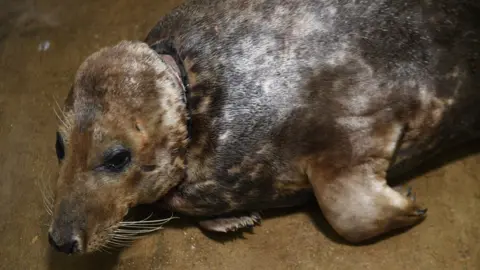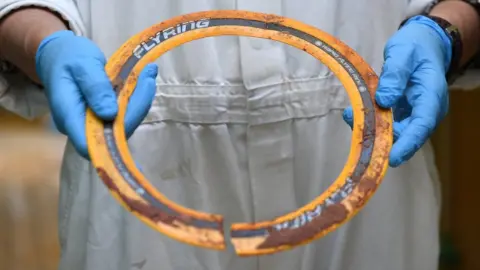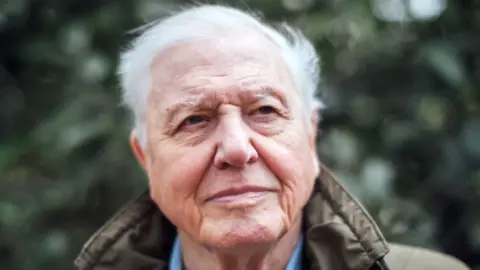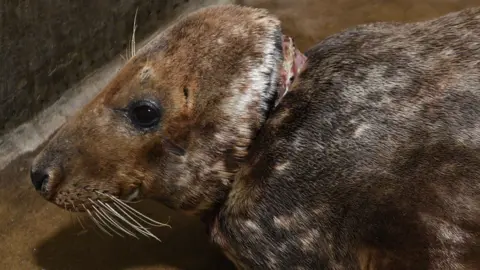Seal in Norfolk named after Sir David Attenborough
 Joe Giddens
Joe GiddensA severely wounded seal with a plastic flying ring stuck around its neck has been rescued and named after nature broadcaster Sir David Attenborough.
The adult male grey seal was found by volunteers on the beach at Horsey, Norfolk, and taken to the RSPCA wildlife hospital at East Winch.
Sir David's Blue Planet II series raised awareness of the environmental damage caused by plastic pollution.
The RSPCA is asking people not to take plastic throwing rings to the beach.
The case is the third of its type in Norfolk in less than two years.
A first seal, Mrs Frisbee, was rescued in 2017 and released the following year, and a second, called Pinkafo, is still recovering at the centre after she was rescued in December.
There had been multiple sightings of the seal but it could not be caught until it weakened.
 Joe Giddens
Joe Giddens PA
PAVolunteer rescuers from Friends of Horsey Seals and Marine and Wildlife Rescue used a net to catch the animal, which weighs 125kg (19st 9lb).
Alison Charles, manager of the hospital, said: "He's in a right state; he's really quite poorly.
"He's not emaciated but he should be a lot bigger and heavier.
"It's obviously been on for some time cutting into his neck. It's caused a huge, deep, extensive wound that's really infected."
More on East Anglia's seal population:
The RSPCA hospital opened in 1988 and did not encounter any litter-related injuries with seals for almost 20 years.
But from 2008 it saw three or four cases per year until last year, when there were 12 at the centre.
 Joe Giddens
Joe Giddens"They're inquisitive animals, they're swimming around in the sea, they see this plastic and unfortunately they put their heads in, and once their neck's in their anatomy doesn't allow them to take it off their head, so it's stuck," said Ms Charles.
"They're getting larger, the Frisbee's getting tighter and tighter and basically garrotting them.
"We hope that people will think about what they're doing and not take this Frisbee to the beach to play with their dog."
